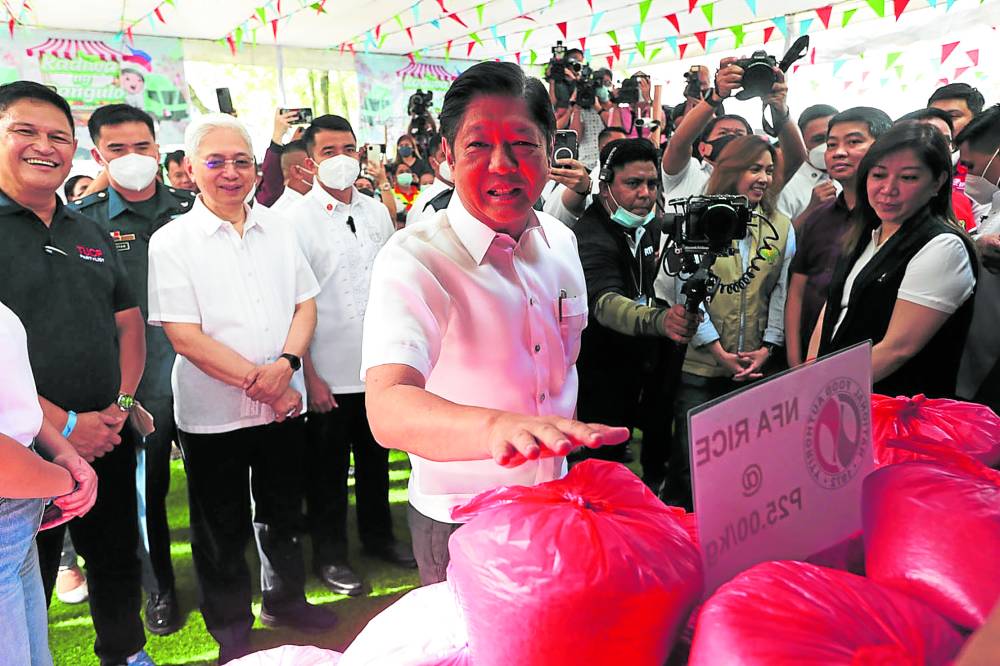
AFFORDABLE COMMODITIES In this photo taken on March 8, President Ferdinand Marcos Jr. launches a Kadiwa outlet at the Trade Union Congress of the Philippines compound in Quezon City to sell basic food items at lower prices. On Friday, to make rice more affordable, he ordered price caps of P41 and P45 per kilo of regular milled and well-milled rice following an “alarming” increase in prices. —NIÑO JESUS ORBETA
MANILA, Philippines – Speaker Ferdinand Martin G. Romualdez vowed on Friday that the House of Representatives would continue helping President Ferdinand R. Marcos Jr. to ensure that food products are accessible and affordable.
Romualdez made the commitment in reaction to the report of the Philippine Statistics Authority that inflation last month eased to 1.9 percent from 3.3 percent in August and 4.4 percent in July.
The September rate was the lowest in four years.
READ: Philippine inflation slows to 1.9% in September 2024
“The intervention measures taken by the government under the leadership of President Marcos Jr. are now yielding positive results,” Romualdez said in a statement.
He specifically cited the President’s decision to drastically cut the rice import tariff from 35 percent to just 15 percent, and the direct sale of rice to the public through Kadiwa stores.
“These twin steps have significantly reduced the retail price of rice, from above PHP50 to PHP60 per kilo, to PHP40 to PHP42 per kilo, or by at least 20 percent,” he said.
He also cited the President’s flagship programs — the Bagong Pilipinas Serbisyo Fair (BPSF) and Presidential Assistance to Farmers, Fisherfolk and Families (PAFFF) — that has visited 24 areas so far all over the Philippines, granting more than PHP10 billion in government services and cash aid that benefited over 2.5 million Filipino families.
Aside from the cash aid, distributed in BPSFs’ services, like employment requirements to help citizens get jobs or seek livelihood, are also offered.
“When people have jobs and livelihood, it benefits not only the local economy but that of the whole country as well,” he noted.
Romualdez said the House would contribute to taming inflation by exercising its oversight power through the five-committee panel created to look into reports of smuggling, hoarding, price manipulation, and other practices in restraint of trade.
The joint panel would also check on the enforcement of the recently signed Republic Act (RA) No. 12022, or the Anti-Agricultural Economic Sabotage Act, which aims to make food items more affordable and make life better for farmers.